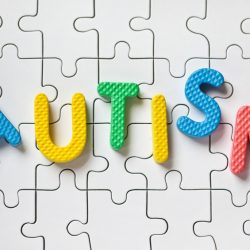SingaporeMotherhood | Preschooler & Up
October 2012
Is Your Child a Bright Spark?

Perhaps your child was an early developer who spoke in complete sentences by the age of 20 months and showed impressive reasoning skills by the age of three. Friends and relatives may also have commented that he or she is smart, so how can you tell whether you’ve got a little Einstein on your hands, a child who is intellectually “gifted”?
[banner][/banner]
1. Identifying Early Signs of Intelligence
Dr S Tan, who specialises in early language development, notes that the “gifted” label in our local context is typically applied to someone whose Intelligence Quotient (IQ) falls within the top percentiles of their age cohort.
“Researchers have however debated the idea of measuring one’s intelligence solely by IQ tests as such tests only measure a person’s cognitive skills. There are many other kinds of intelligence, such as emotional intelligence or musical intelligence, which are not taken into account in traditional IQ tests.
As standard IQ tests can only be administered accurately to school-age children, it would be more appropriate to identify general intelligence in a young child by the abilities he or she demonstrates.”
In her book Raising Gifted Kids, author Dr Barbara Klien lists some characteristics which intellectually gifted children may exhibit. The specialist in clinical psychology and early childhood education observes that such children tend to be “critical thinkers; creative, rapid learners; curious; capable of being highly communicative; extremely perceptive; able to retain information easily; and committed to a task, which they pursue resourcefully and in detail.”
2. Characteristics of Intelligent Children
Experts and parents of intellectually “gifted” children share the following examples of some traits which bright youngsters may exhibit:
Early language development
According to Dr Tan, “research has shown that infants with larger vocabularies at two years of age tend to have better language skills at the preschool age. They also tend to attain higher verbal and nonverbal cognitive scores at eight years of age.”
Christy is a home-maker and mother of three children who have all qualified for the MOE’s Gifted Education Program (GEP) and/or Integrated Program (IP). The former banker recalls that her second child was “able to speak complex, yet grammatically perfect sentences by the age of 30 months.”
Fast learner who retains information easily
Christy says that her eldest child “was able to recite stories with perfect recollection at a very young age – practically word for word,” while her second child “had an insatiable appetite for informative books” from the age of two. “As a young child, he could articulate Science concepts which I myself have found difficulty explaining,” she describes.
Shows selective interests
Professor of psychology, Ellen Winner, observes in her book Gifted Children: Myths and Realities that gifted children are “intrinsically motivated to make sense of the domain in which they show precocity, which often includes an obsessive and sharp focus on their own interests.”
Elsie is a mother of two. Her daughter has qualified for membership to Mensa Singapore, a society where members have an IQ score within the upper two percentile of the general population.
The secretary recalls, “My daughter started talking around the age of one and loved stories. She would not sit still in her nursery class, but would roam around to other classes to join in story-telling sessions and whatever activities interested her. During her Primary school years, she would spend many hours a day reading at home. She even read under the table during Maths lessons, much to the frustration of her teacher.”
Is perceptive
Highly intelligent children often have their own unique ways of perceiving and understanding the world around them. When her daughter was still a pre-schooler, Christy remembers that she could spend long hours drawing and making up stories: “The pictures that she drew featured interesting perspectives that seemed too much to expect of a young child. Her pictures did not just depict objects. Instead, each had a storyline.”
Has capacity to concentrate
Dr Klein observes that “Bright babies, toddlers and growing children are able to concentrate for long periods of time. They become fascinated with an object, game or a toy and seem to lose interest in everything around them.”
This ability to concentrate may possibly be influenced by the child’s temperament. As Dr Tan notes: “Child temperament may play a role in determining children’s cognitive development. Those with easy rather than difficult temperaments may have less difficulty regulating their emotions and attention. As a result, they may be more attentive and able to learn things such as new words more easily.”
Is curious
Being curious and highly motivated to learn more about the world around them, Dr Klein observes that bright children tend to ask a “bottomless pit of questions”. Elsie recalls: “Before the age of four, my daughter would ask questions like ‘Can light shine through the skin of your nose?’ and ‘Can you breathe and talk at the same time?’ Each time we answered her questions, it would be followed by another ‘Why?’”
Has relational maturity
Some early developers may exhibit a level of maturity that is beyond what is expected for their age. Christy shares that her youngest son “shows intelligence in the way he interacts with people, both young and old. He has a way of winning the hearts of people around him and always gets excellent reports from teachers and is well-liked by peers.”
3. Giving Space and Support to Grow
While the above list of characteristics may help parents to identify areas in which their children show potential, every child has his or her unique strengths and there is no need to be disappointed if your child shows none or only a few of these traits.
Dr Tan explains: “A child who has a head start in language or cognitive ability may not always be ahead of his or her peers. There are also children who are late developers. Research suggests that ‘fluid intelligence’ (our ability to reason and solve problems) peaks relatively late in life—when we are in our twenties. Moreover, everyone has their own strengths, be these cognitive, social, or motor skills.
Therefore instead of focusing solely on nurturing early signs of cognitive intelligence, parents can help their children develop a sense of self-worth and competence by encouraging them in their areas of strengths.”
Mrs Kuek is a working mother of three young adults. Her eldest daughter is a speech pathologist who is currently working overseas. Her second child was a GEP student who is now in National Service, and his twin brother is a medical undergraduate at the National University of Singapore.
In their early developmental years, all three children did not exhibit any extraordinary signs of “giftedness”. However, the children displayed a high level of curiosity and often read widely to satisfy their inquisitiveness.
Mrs Kuek did not feel the need to ‘hot-house’ her children by sending them for “GEP preparation classes” or tuition classes, apart from Chinese. Instead, she encouraged her children to play with jigsaw puzzles or games and activities which stimulated and challenged the mind. The libraries were (and still are) their common “hide-out”.
Looking back, Mrs Kuek reflects that a parent’s role in encouraging intellectual development is to “observe, expose and nurture one’s children in the areas of their interest”. Borrowing her child’s school motto of “experiment, explore, excel”, she explains “As parents, we must provide our children with the opportunities to explore various interests and subject matters. We equip them with the foundations and if they have a passion for it, allow them to pursue their interests as they develop. Let the children identify their areas of strength through different areas of experimentation. Having identified these areas, we can then nurture our children in that area to help them to excel”.
Mrs Kuek adds, “It does not matter whether the children show any signs of ‘giftedness’. It is more important to love your children for who they are instead of loving them for their abilities. Give them the necessary support and encouragement, both physically and emotionally, that they need to grow and develop into mature adults”.
All content from this article, including images, cannot be reproduced without credits or written permission from SingaporeMotherhood.
Follow us on Facebook, Instagram, and Telegram for the latest article and promotion updates.






